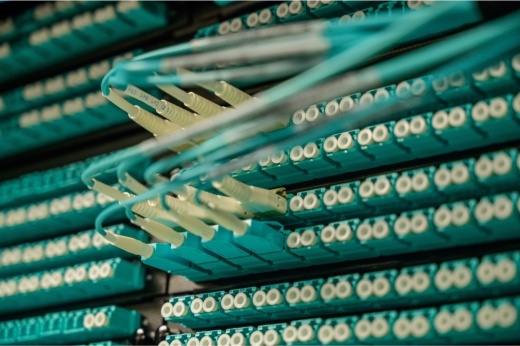The project is expected to finish design within 12 months and to complete construction after an additional 12 months, for a total build-out time of 48 months, or two years. Officials with SiFi Networks have promised the city a nearly 100% connection rate to residents within the city once the roughly 900 miles of cable is fully built out.
The network is purported to be open-access, meaning that any internet service provider, or ISP, such as Comcast, Spectrum, Xfinity or more local providers can sell internet via the company’s infrastructure once they have purchased the wholesale data access.
SiFi Networks CEO Scott Bradshaw told Sugar Land City Council members at the Feb. 7 meeting that the project will offer speeds of up to 10 gigabytes per second, well above the 25 megabytes definition of broadband that the Federal Communications Commission provides. In addition, Bradshaw claimed the project would be a step toward reducing internet access inequality.
The project is entirely privately funded, with zero up-front cost to the city. In exchange, SiFi Networks is asking for a 30-year contract with 10-year extension periods with which to sell their product, as well as for the city to grant easements along public right of ways.
While council members agreed the project is a strong proposition, several council members voiced concerns that the contract was much too binding in favor of the company.
“What sort of recourse do we have if you’re not providing good service, for instance if a line is cut,” Council Member Stewart Jacobson said. “What if you’re not providing enough ISPs so there’s not competitive pricing? On and on I can think of creative horribles, but I would like to know what we can do if our hands are tied or this deal goes belly up.”
Bradshaw countered that all information, including exculpatory clauses and all building and maintenance requirements are included in the city’s contract.
“Yes we’re going to construct, but it’s a dig-once policy,” Bradshaw said. “If we aren’t building the way the permits have been approved, you can stop us, stop the project. That’s a key thing you have—and that comes down to a difference here between a monopoly with the right estate, and a partnership where you have the ability to stop us.”
Mayor Joe Zimmerman also said any other internet service provider or internet infrastructure company has the ability to approach the city.
Council Member William Ferguson echoed his concerns from the Jan. 24 City Council workshop in which he pointed out that the project may endanger the city’s trees and other right-of-way improvements. Council Member Naushad Kermally said the “grade-A citizens of Sugar Land” deserved “grade-A service.”
“Sugar Land deserves the best, and that’s the truth.” Ferguson said. “Like Councilman Stewart, I love this—there’s just so many questions I would love to see answered.”
Bradshaw insisted the city will receive all data from the construction project, including underground data, which the CEO said is “immensely useful.”
City Attorney Meredith Riede told the City Council during the Feb. 7 meeting that the contract presented had undergone “substantial” revisions to the one presented at the Jan. 24 meeting. Meanwhile, City Manager Michael Goodrum admonished the City Council, saying a significant amount of research into other cities as well as into SiFi Networks had been completed ahead of the Jan. 24 and Feb. 7 meetings. Another city official said Sugar Land has been in talks with SiFi Networks for over a year.
“We’ve talked about this a number of times, we’re going to have to get comfortable with managing some risk if we want to be in front and actually doing some of the things we’re talking about doing,” Zimmerman said. “Managing risk is key, and that’s important, because we need to flesh out what this council’s tolerance for risk is.”
The City Council approved the contract in a 5-2 vote. Council Members Naushad Kermally and Ferguson voted against the project.





